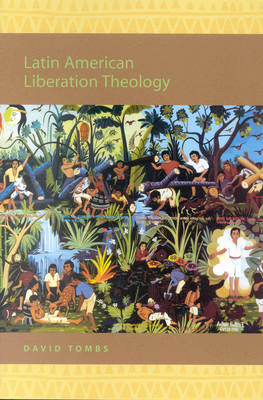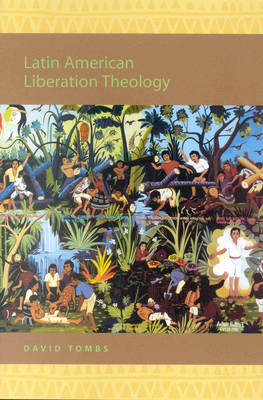
- Afhalen na 1 uur in een winkel met voorraad
- Gratis thuislevering in België vanaf € 30
- Ruim aanbod met 7 miljoen producten
- Afhalen na 1 uur in een winkel met voorraad
- Gratis thuislevering in België vanaf € 30
- Ruim aanbod met 7 miljoen producten
Zoeken
Omschrijving
David Tombs offers an accessible introduction to the theological challenges raised by Latin American Liberation and a new contribution to how these challenges might be understood as a chronological sequence. Liberation theology emerged in the 1960s in Latin America and thrived until it reached a crisis in the 1990s. This work traces the distinct developments in thought through the decades, thus presenting a contextual theology. The book is divided into five main sections: the historical role of the church from Columbus's arrival in 1492 until the Cuban revolution of 1959; the reform and renewal decade of the 1960s; the transitional decade of the 1970s; the revision and redirection of liberation theology in the 1980s; and a crisis of relevance in the 1990s. This book offers insights into liberation theology's profound contributions for any socially engaged theology of the future and is crucial to understanding liberation theology and its legacies.
This publication has also been published in hardback, please click here for details.
This publication has also been published in hardback, please click here for details.
Specificaties
Betrokkenen
- Auteur(s):
- Uitgeverij:
Inhoud
- Aantal bladzijden:
- 334
- Taal:
- Engels
- Reeks:
- Reeksnummer:
- nr. 1
Eigenschappen
- Productcode (EAN):
- 9780391041813
- Verschijningsdatum:
- 1/02/2003
- Uitvoering:
- Paperback
- Formaat:
- Trade paperback (VS)
- Afmetingen:
- 156 mm x 223 mm
- Gewicht:
- 498 g

Alleen bij Standaard Boekhandel
+ 198 punten op je klantenkaart van Standaard Boekhandel
Beoordelingen
We publiceren alleen reviews die voldoen aan de voorwaarden voor reviews. Bekijk onze voorwaarden voor reviews.











